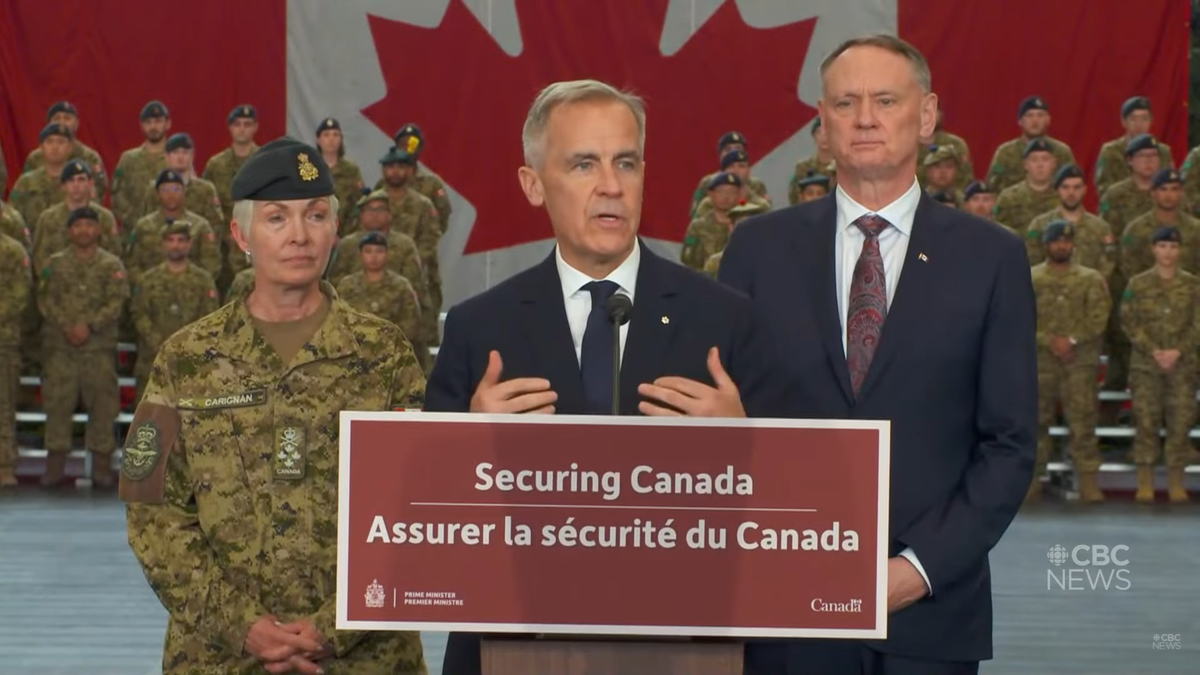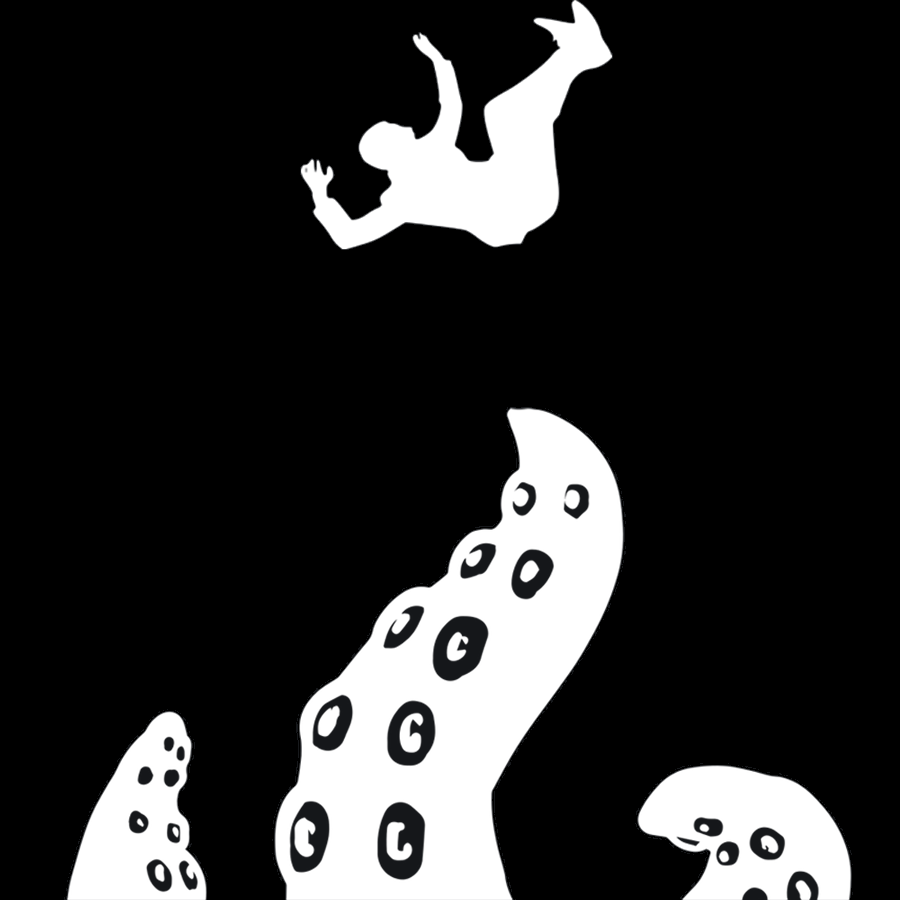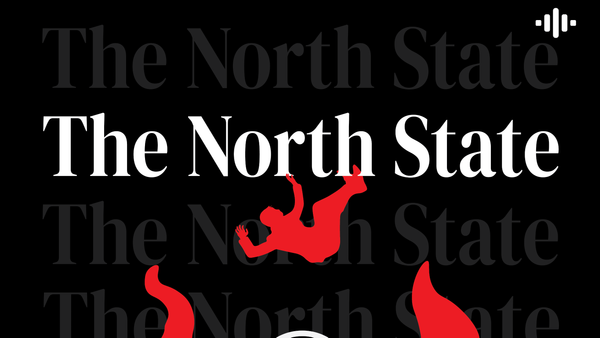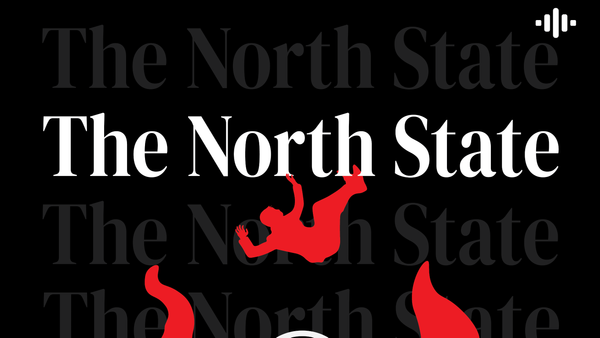It's the Magical Military Tour
Carney touts expanded militarism and AI-hype as the right way to defend Canadians

Liberal Prime Minister Mark Carney has been a let-down for folks who believed he would stand up the Trump and the US. The first sign came with the Liberal's draconian border bill. But with his latest announcement, Carney has solidified that his set of beliefs are not just a more "centre" way to do Liberal politics, they are fundamentally right-wing.
On June 9, Carney announced his government would be meeting the two per cent of GDP military spending that NATO membership "requires." There are quotes around "requires" because Canada has never done this. Despite ribbing from people like US President Donald Trump and other US politicians for not meeting this requirement, the country has remained in NATO. This new budgetary commitment from Carney means, however, that $9.3 billion will now be funnelled into the Canadian military.
There were other military initiatives and policies included with this news. Carney seems to have a laser-focus on the Canadian military developing AI capabilities, and has promised a new agency to do so. This one will be called BOREALIS, which stands for Bureau Of Research Engineering and Advanced Leadership in Innovation and Science. BOREALIS will, apparently, focus its efforts on developing AI capabilities and quantum computing– all funnelled into the military, of course.
One should immediately take pause at Carney announcing that this new funding, as part of increasing the budget of the military, will focus primarily on AI. In one of the most high-profile uses of AI in the military context, +972 Magazine reported in 2024 that Israel uses an AI program to mass target Palestinians in Gaza for bombing. Meta has teamed up with defence contractor Anduril to develop AI technology specifically for the US military. It would hardly be surprising to learn that Canada's new military AI push will similarly funnel profits into big tech companies for minimal return.
Regarding international threats: In the morning announcement, Carney addressed sovereignty violations in the West Bank and Ukraine as reasons to bolster Canada's security. This notably came only after he name-checked Russia and China as threats to be combatted.
It is important to note that Russia is currently bogged down in year three of a war they thought they could win handily. While that does not dismiss their threat entirely, it frames the use of their name in this particular announcement. As for why Carney felt the need to assert China was an obstacle in the same breath, while later admitting partnership with them in this initiative was important... I'm sure you can guess why.
Throughout the announcement and the following press conference, Carney repeatedly stressed that this was a move to defend Canadians and foster a Canadian "defence" supply chain, rather than fulfill NATO requirements. In the context of NATO, the organization was specifically created by the US and its allies to combat the Soviet Union in the late 40s, and has expanded significantly since the end of their communist rival. Indeed, Trump's demand for an increase to five per cent GDP spending on military commitments seems to be a plan accepted by NATO officials. As mentioned earlier, Trump had previously made it a point to criticize Canada for not meeting the two per cent target.
The US is the elephant in the room of this discussion, of course. Carney wanted to try and have his cake and eat it, too. In one breath, he condemned the US attempting to "monetize its hegemony." "A new imperialism threatens," Carney warned. Meanwhile, he's pumping up military funding to satisfy a US-led organization. Funding that will necessarily hand more money to US defence contractors in the path to become more "self-sustaining." As Carney admitted, the Canadian and American militaries will always have some level of integration, even if he doesn't believe it to be "inevitable."
Not to mention it's extremely frustrating that Carney is using the threat of imperialism to further militarize Canada and meet NATO spending targets.
In short, Carney's announcement is a commitment to the US-led NATO order, a rampant militarization of Canadian politics and a frankly disturbing push to integrate Canadian AI into warfare.

In truth, Carney's infatuation with the war machine reared its ugly head before this announcement. Despite polls showing overwhelming disapproval of joining Trump's ridiculous "Golden Dome" missile defence proposal, Carney is seriously considering joining the project. Estimates at the cost of doing so would be approximately $83.6 billion, minimum. An article at The Breach delves into how the Dome with escalate the arms race and funnel billions to arms contractors. Carney's recent announcement, alongside interest in the Golden Dome, has shown he will firmly lead with military escalation in mind. After all, as Carney stated plainly: "We expect a further acceleration of spending."
So where does the money come from? Carney promised he wouldn't raise taxes, and refused to comment on its contribution to the debt/deficit. When speaking on cutting social services, Carney echoed himself earlier in the day. "There is no true security without economic strength. This is true for defence and security, it's true for social systems as well," Carney said. "This is going to require a degree of cooperation." Alongside previous comments to trim the public service, we can expect some level of reduction in the increasingly insufficient services offered to Canadians.
Unsurprisingly, this ominous ode to austerity in service of expanded militarism has been lauded by the right-wing. National Post columnist John Ivison declared "Carney’s plan to build a more self-reliant defence industry at home, and to strengthen transatlantic links with European suppliers, is long overdue." Conservative party leader Pierre Poilievre agreed the military spending should increase, and that Canada should focus on a "warrior culture."
Carney's Liberals have been in power for an extremely short amount of time, but they have shown themselves to be more akin the Stephen Harper than Justin Trudeau. Prioritizing resource extraction, threatening civil liberties and now promising massive escalation in warfare is right-wing, plain and simple. Canada may have dodged one bullet by avoiding a Poilievre government in April, but we've been struck by another. Thankfully our healthcare system has all the funding it needs to patch it up, right?






